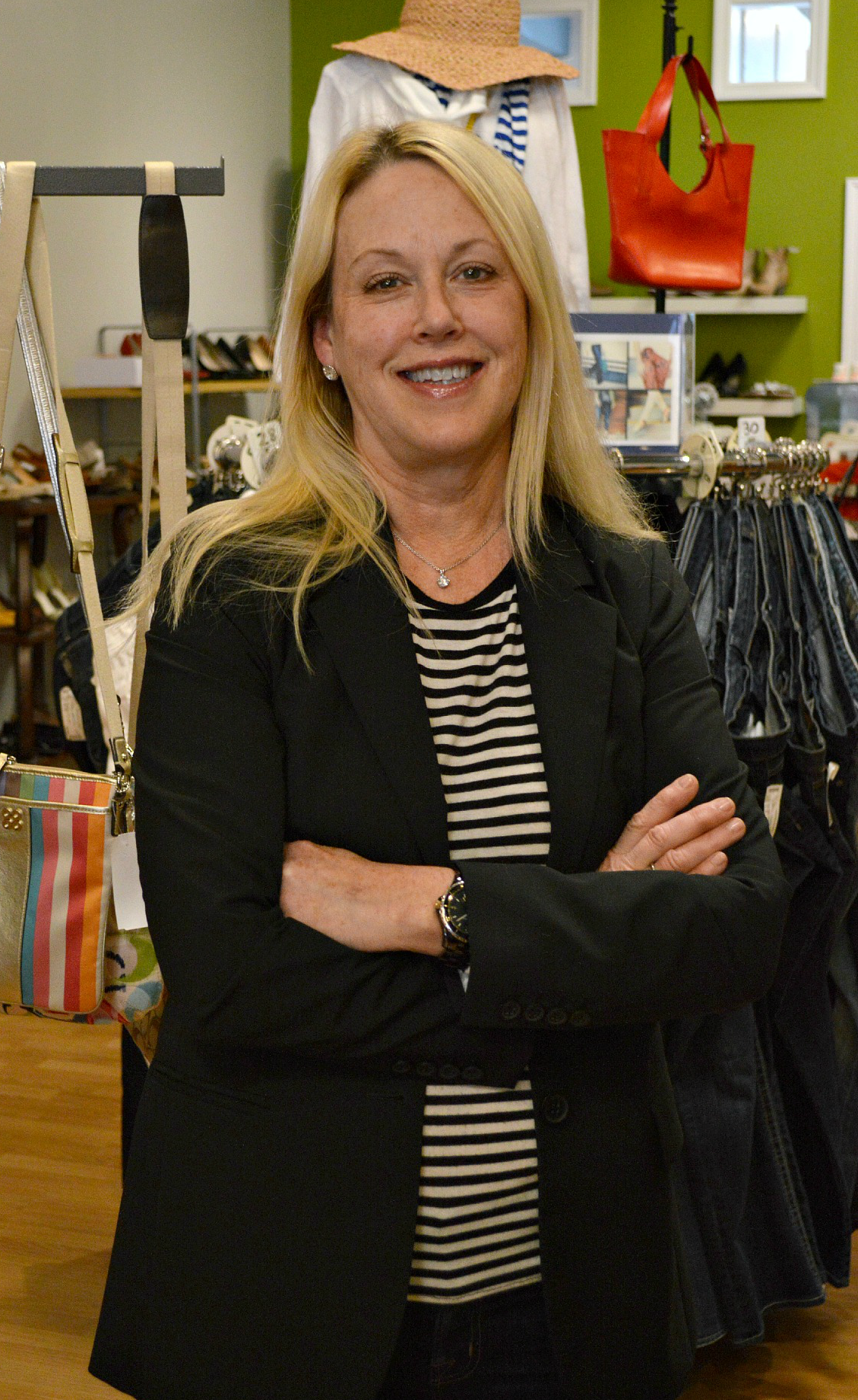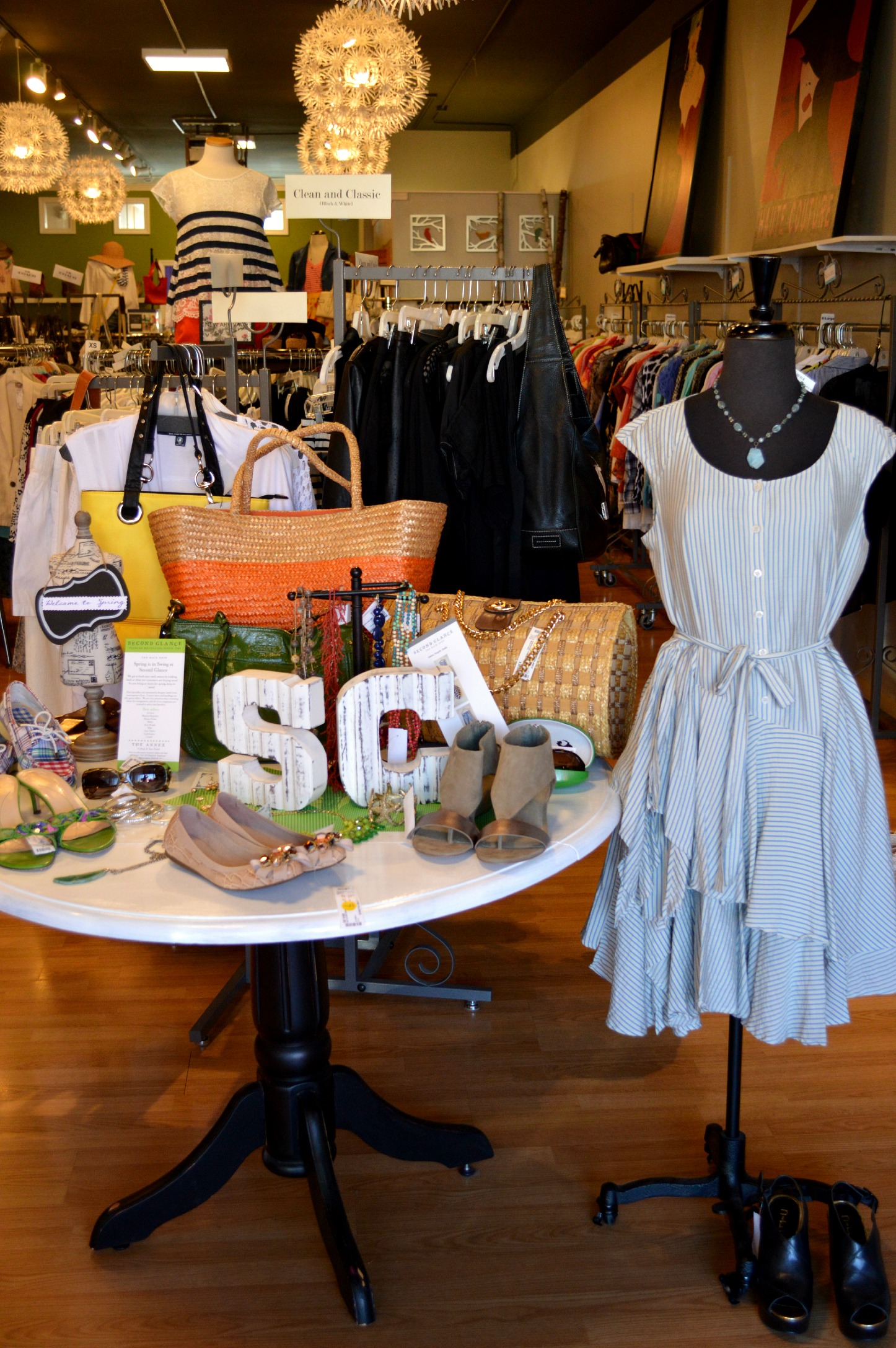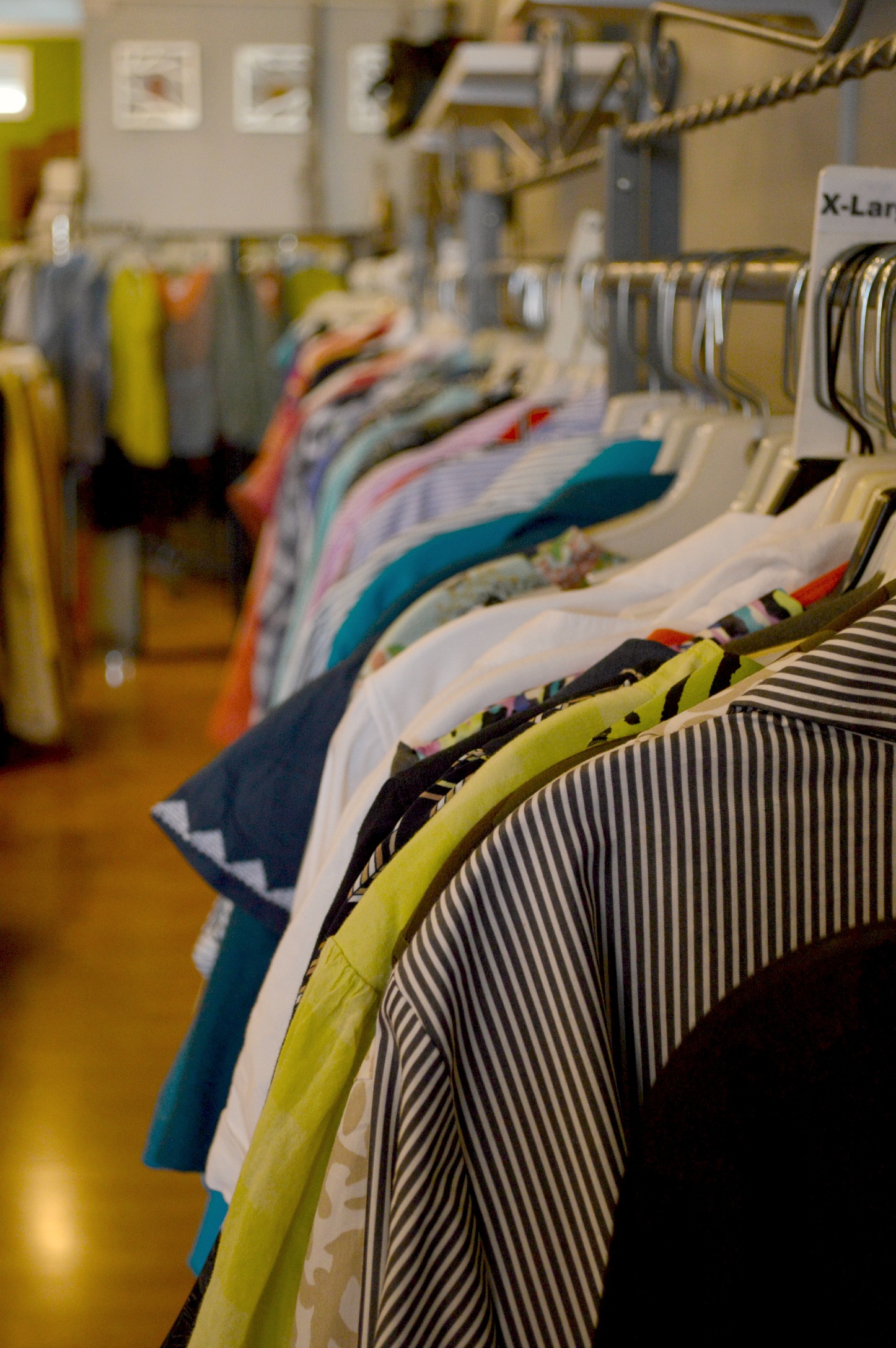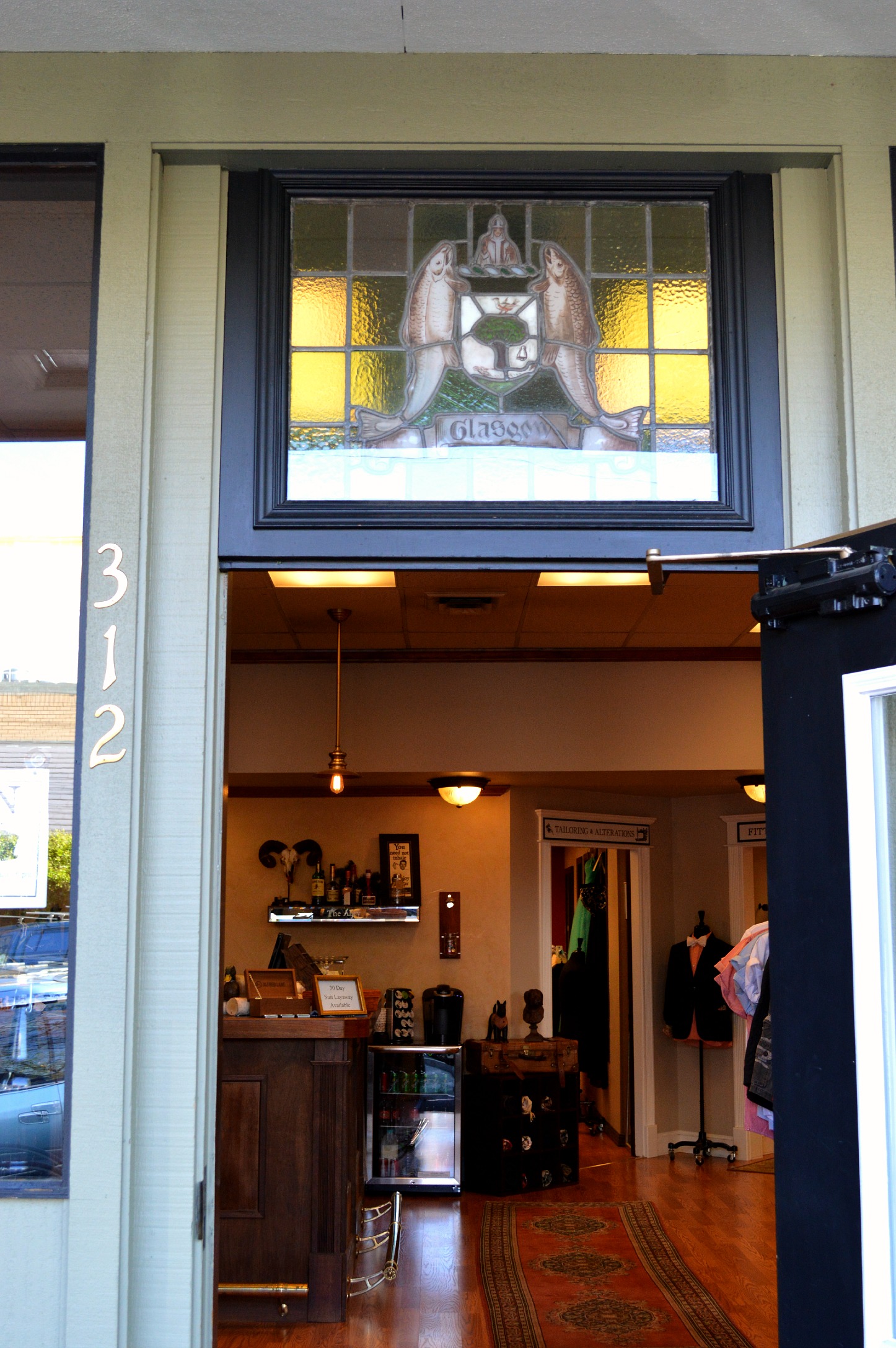 ADDRESS: 3 locations – The Main Shop: 312 SW 3rd St
ADDRESS: 3 locations – The Main Shop: 312 SW 3rd St
The Annex: 214 SW Jefferson – The Alley: 312 SW Jefferson
PHONE: 541-753-8011 (Main) – 541-758- 9099 (Annex) – 541-753- 4069 (Alley)
WEBSITE: www.glanceagain.com
OWNER: Nancy Kneisel
YEARS IN BUSINESS: 31
NUMBER OF EMPLOYEES: 9-10, depending on time of year
WHAT THEY SELL: Recycling and resale of clothes, shoes, and jewelry for all genders
WHY YOU SHOULD GO: These quaint stores, all within walking distance of the center of downtown Corvallis, present a unique and accommodating way of reselling and distributing clothes, shoes and accessories.

The main Second Glance shop provides a wide selection of clothes for women, the Alley a selection for men, and the Annex a wide array of clothes for teens and young adults. While browsing through any of these stores, the customer feels at ease with gentle lighting and soft music. What makes Second Glance truly special is the idea of taking gently used clothes from one owner and “recycling” it to new customers, limiting the amount of waste produced from perfectly wearable material! Purchasing from consignment stores is a great, sustainable way to contribute to our community’s economy and the world’s environment.
Nancy, when and why did you decide to start your business? I opened my business in 1984, after I had discovered the industry about a year and half prior to opening.
I grew up in a poor but lovely family, where my mom made our clothes. It never occurred to us to go to thrift stores since my mom told us those stores were for the really destitute. She said that no matter how bad off we were, there was always someone in worse shape. Mom taught me how to take care of fabric. I knew how to make clothes at age 11; we just didn’t have a lot of money for fabric. I coveted other people’s clothing, but I knew that there were other things I had to work towards like education, marriage, and a house.
When I got married, my husband insisted on buying something for me for Christmas. So we went to Nordstrom, and I almost had a heart attack at how much things cost. I didn’t want to buy anything, but my husband insisted. So I bought four pieces of clothing, and I wore them for years until they wore out.
It wasn’t until my younger child was two and the older was four, and we were living on a limited income, that I started going to garage sales and looking for things on sale. I had a friend who asked me to visit her resale store, which was called Rags to Riches. I stepped in and had a light bulb moment. I looked at the setup, the labeling, the pricing, and I thought, “This is amazing for a thrift store!” Everything was displayed so nicely, and over in the corner there was a designer handbag that looked like it belonged in one of those big department stores. I never thought I would own something like that, but it was only 16 dollars. The idea was just so smart!

From that point, I became addicted to the process of resale. For the first time ever, after we moved to Idaho, I didn’t have to work. I would get up every day and go shopping for bargains. I had a list of every thrift store and all their sales. I kept thinking this was a really smart business, and at that point I was just having fun. I started to buy clothing – nothing over more than a couple of dollars – after looking at labels, construction, and design. I would bring the clothes home, wash them, and then hold my own garage sales, marking up the price of each item. I would see what sold and what didn’t sell. It was just fun and educational. But then I started dreaming about having my own shop – what paint color I would put on the walls and what layout I would use. I had a scrapbook, and I would cut out pictures from Vogue and other magazines and put together composites for displays. I was just doing fun background work, but, in a way, I was also doing research.
I knew at that point I never again wanted to work for somebody else. I picked up an entrepreneur magazine, and there was this little ad in the back that said, “Do you want to open a consignment store?” I pointed it out to my husband, and he said, “Just get it!”
We came back to Corvallis soon after that. My husband had no job, and we had two kids and no savings. To start a regular business you have to initially spend money to get the inventory for your store, but with consignment stores, people bring their stuff and they don’t get paid until it’s sold. It’s like getting free stuff. How many businesses are like that?
I said I would open the shop when I had a thousand pieces of clothing, and it happened in the first three weeks! I worked the job myself. I told people it wasn’t a thrift store; it was a consignment store, which at the time was difficult for people to grasp. It was a hard first year because I was promoting something that wasn’t popular. Public consciousness was quite different 30 years ago; there were thrift stores and nothing else. Since then, young people have grown up knowing the difference between “thrift store” and “resale”.

I always knew what my shop was supposed to look like. We live in a throwaway, disposable world that is going to someday bite us in the rear. I was raised with the idea that if you’re going to do something in your life, please make it mean something. At my business, I’m putting value on something that should have had value before. I say, let’s give these items more life; let’s not continue conspicuous consumption. Why have twenty pairs of jeans when you only wear 4-5?
I have never lost my vision. I have been extremely lucky to have valuable employees. I constantly remember our mission statement, what our values are and what we are doing. It’s just really important to have the people’s trust, their trust in our judgement. We’ve tried to live by the motto that we are here for you, we are professionals for you. I have never wavered from that.
Tell us more about your products. I’ll take any clothing that sells, and that means if clown pants were selling, then I would take clown pants! That doesn’t mean I would wear them. I cherry-pick everything that comes in the store, so you don’t have to search through racks of what could be many unattractive items. I use my taste in terms of quality, labels, design, and so on.
I also have a finite space. People don’t realize that my store doesn’t extend through the walls and into the back parking lot! I feel the intimacy of the small space, and it allows me to feature varying types of clothes in a setting that lets me help the customers and control the inventory. We are a consignment shop that caters to a higher quality client base. We want you to feel like we have looked over anything you pick up, and we have priced it to sell. We work hard to ensure that you find what is delightful to you. I want people to feel like they’re getting value for what they’re paying for; no buyer’s remorse, that they love, love, love what they get. Essentially, we are providing a service for cleaning out closets, taking care of the planet and along with that I get to play in a big closet every day!
What does being featured as the Local Business of the Week mean to you? It means a lot. You know, all press can be good press! It’s reaffirming that Second Glance and its satellites stores [The Annex and The Alley] are still visible and valid. If our customers read this interview and see our business is being featured, they’ll be proud that they have gone here. It’s nice to be recognized.
What challenges have you faced as an independent local business owner? How have you met those challenges? It’s hard to choose just one to talk about. The raise of the minimum wage is a tough challenge. Now there are no entry level jobs for people getting their first jobs. I used to hire young high school girls, and I loved having my summer help. But once they started raising minimum wage, I realized that I couldn’t do that anymore. If I did, I would have to funnel money to my longer term employees so they are paid above minimum wage. There’s a lot of training involved in the business, and the ones who have worked longer should be paid more than the summer help.
What does the future look like for the local independents? It’s difficult. We are creating a constant trauma for our planet if we continue with the “I only got it for five dollars but it falls apart in the first couple days” kind of system. It really comes down to quality versus price. If I’m trying to sell quality items, I still need to keep myself profitable.
(Interview and article by Madison Boock – June 7, 2015)
 The Local Business of the Week program is designed to help the Corvallis community identify our locally owned independent businesses by featuring one business each week. The program is part of the Buy Local First campaign co-sponsored by the Corvallis Sustainability Coalition and the Community Independent Business Alliance (CIBA).
The Local Business of the Week program is designed to help the Corvallis community identify our locally owned independent businesses by featuring one business each week. The program is part of the Buy Local First campaign co-sponsored by the Corvallis Sustainability Coalition and the Community Independent Business Alliance (CIBA).

